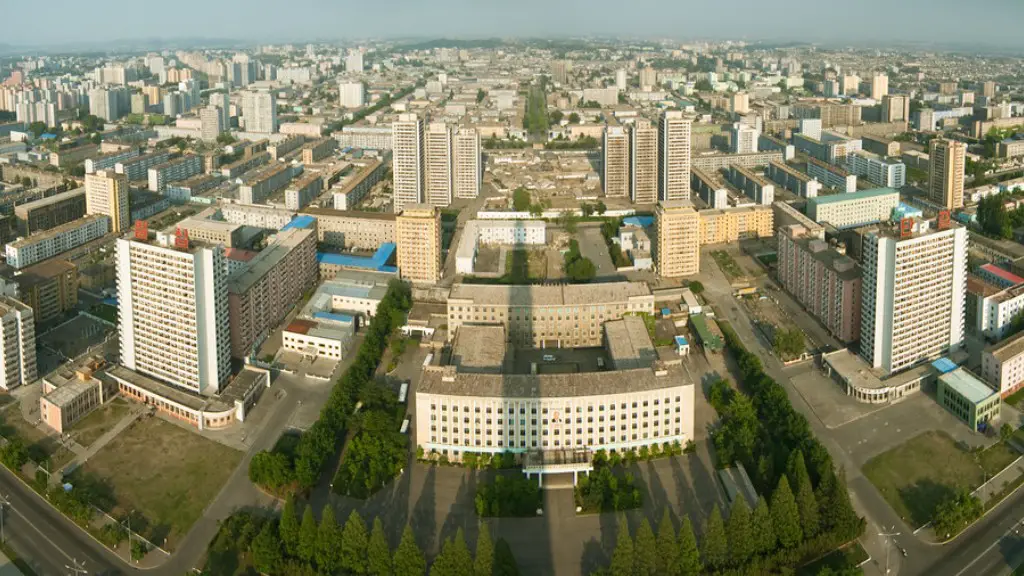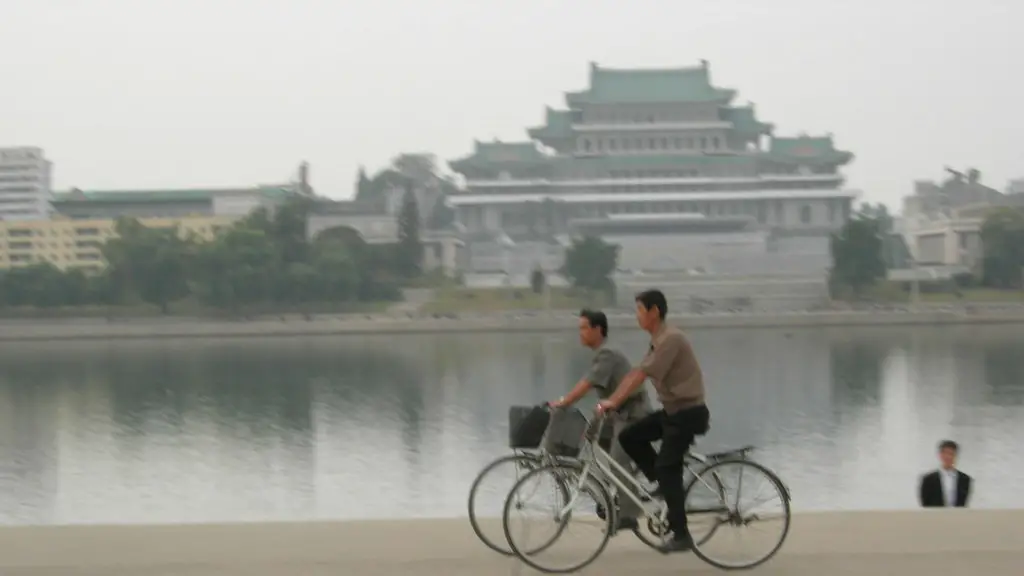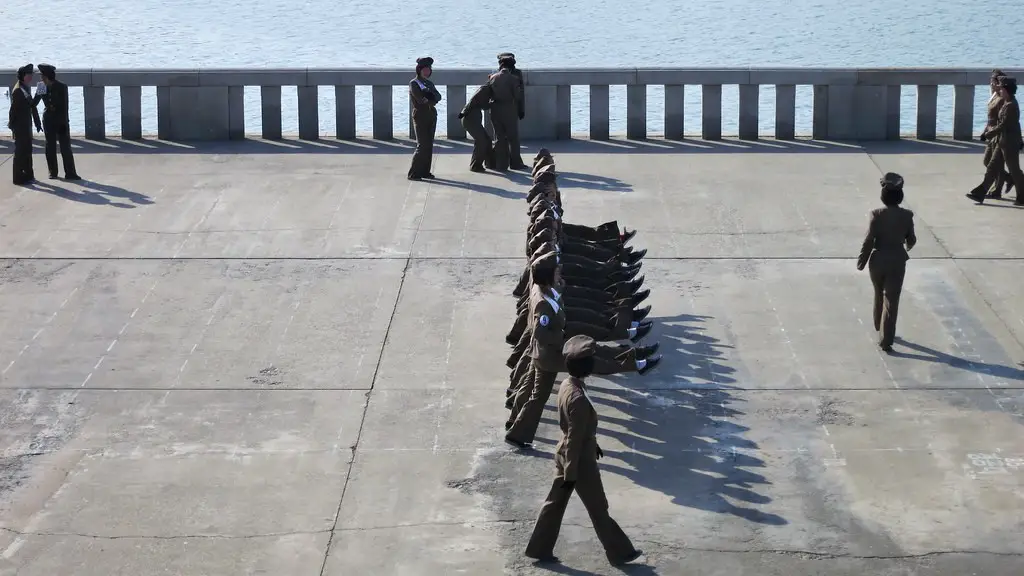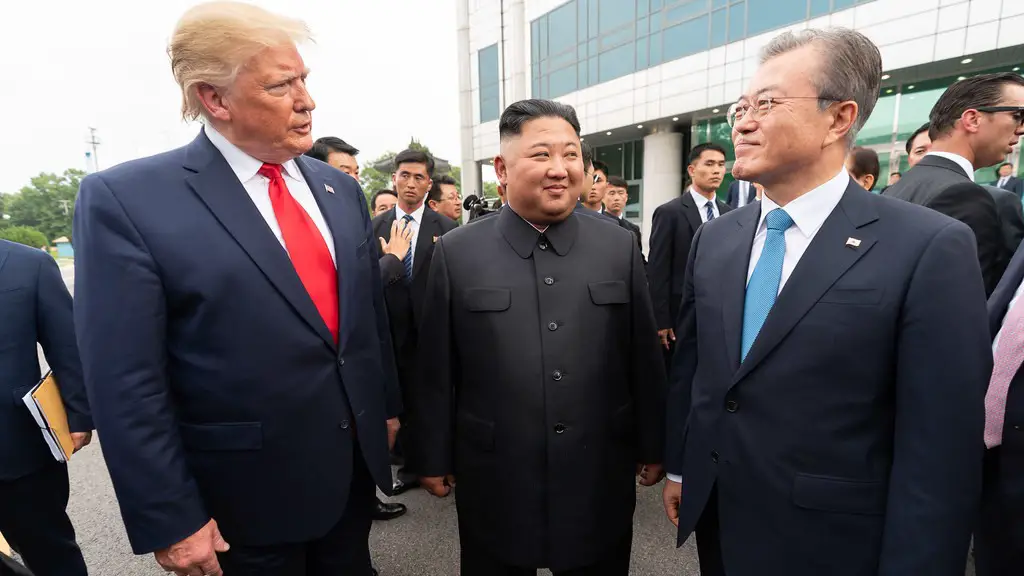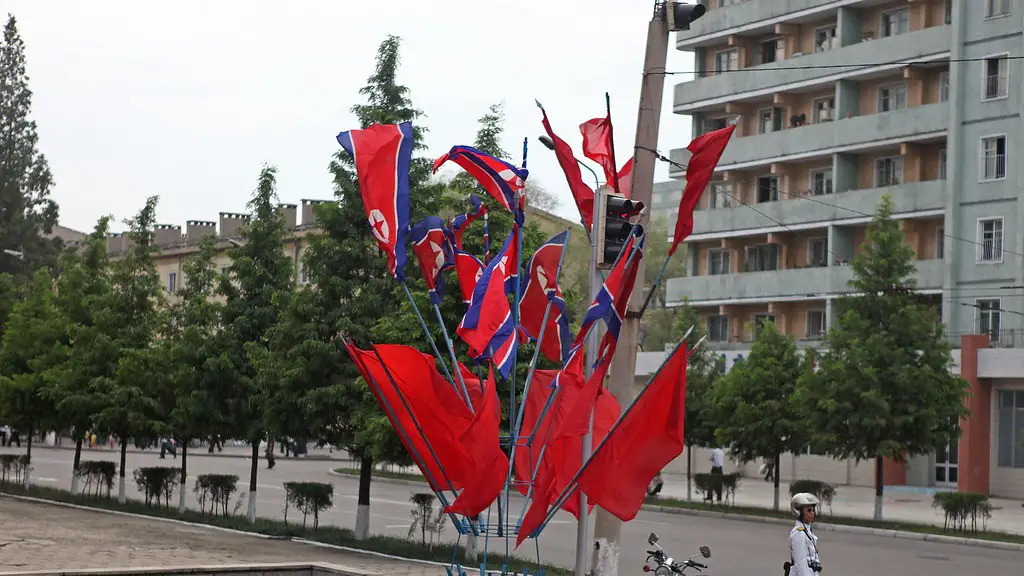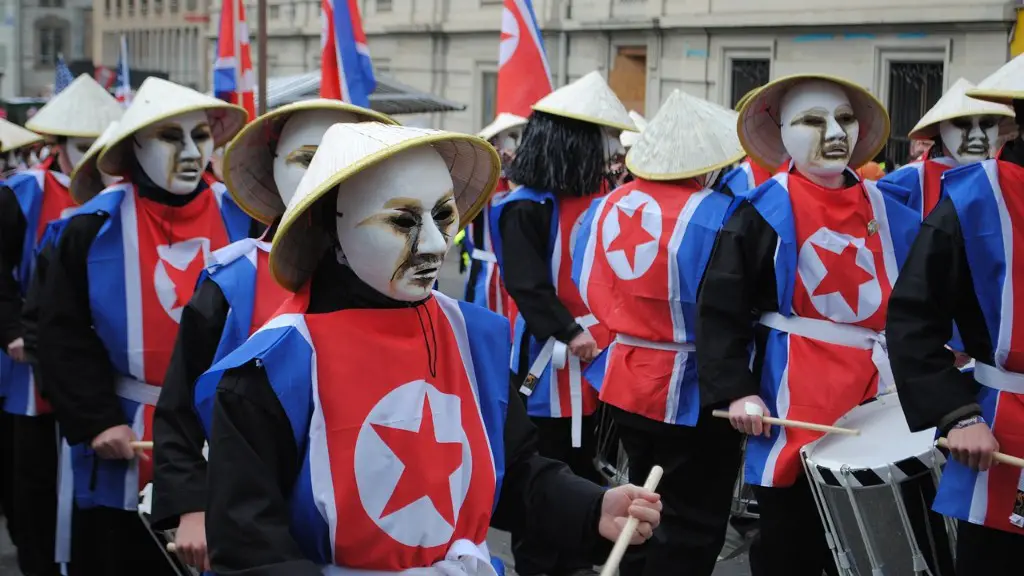North Korea is a powerful and enigmatic nation. It is a dictatorship which has isolated itself from the international community, with little access to outside information or economic engagement. Despite internal sanctions, forced labor and a highly insular nature, the nation remains a geopolitical player whose activities have far-reaching consequences. Despite its power, North Korea continues to face many challenges. This article will explore the reasons behind North Korea’s unparalleled power and the potential risks associated with such power.
North Korea’s military power is one of the primary reasons behind its strength. North Korea has an estimated total of 1.2 million active military soldiers, making it the fourth largest standing army in the world. It also has the largest special operations forces, with an estimated 200,000 soldiers. The North Korean army also boasts powerful equipment, including advanced missile technology, tanks, and air defense systems.
North Korea’s nuclear weapons program is another key aspect of the country’s power. North Korea has successfully tested five nuclear bombs in the past and is believed to possess a stockpile of 10-16 nuclear weapons. This makes North Korea one of the world’s most powerful nuclear forces. The program is thought to have been in development for decades, and its success is due to the immense resources that have been pumped into it.
North Korea’s unique political system is a major factor in its power. The nation is a totalitarian dictatorship, with absolute control over the population and economy. This allows the state to exercise full control over the people and resources within its borders. This form of governance has allowed North Korea to impose strict rules and restrictions that limit the rights of citizens while maintaining a strong grip on the country.
North Korea’s diplomatic clout is also a major strength. The nation has been able to undertake talks and negotiations with world leaders, including US President Donald Trump and its historic rival, South Korea. It has also managed to secure its place in the United Nations despite its shaky compliance with international law. This diplomatic success has allowed North Korea to remain an influential player in international politics.
North Korea’s formidable power also results from its aggressive stance on security. The country maintains a vast military presence along its border with South Korea, as well as its nuclear program, which shows no signs of slowing down. This has led to regional instability and a fear of attack from North Korea, though Pyongyang has expressed a willingness to negotiate with its neighbors.
The reasons for North Korea’s power are numerous, and its effects are far-reaching. Despite its power, North Korea faces many challenges, from a faltering economy to international isolation. There is no denying that North Korea is a powerful nation and its activities have the potential to shape international politics in profound ways.
Economic Challenges
North Korea’s powerful military and diplomatic clout has not translated into a strong economy. The nation’s economy remains largely isolated with 90% of its exports going to China. It relies heavily on foreign aid and struggles with poverty, food shortages, and a lack of basic goods and services. The antiquated system of central planning has also further weakened the economy, leading to inefficient operations and leading to a reliance on foreign investment.
North Korea has also experienced a great deal of economic sanctions due to its nuclear program. The United Nations Security Council has imposed a series of economic restrictions and the US and other nations have imposed extensive sanctions of their own. This has crippled North Korea’s economy and further weakened its already depleted resources.
The nation continues to face a number of economic challenges, from food insecurity to a lack of basic goods. These issues have affected the health and well-being of the population and have been a major factor in the nation’s political and economic instability.
The economic challenges have also had a significant impact on the nation’s military capabilities. North Korea’s outdated military hardware and lack of access to foreign technology has resulted in its forces being outmatched in terms of modern military capabilities.
International Isolation
North Korea’s international isolation is another major factor in its power. The nation’s refusal to engage with the international community and adhere to international law has resulted in its international isolation. This has resulted in few diplomatic ties and has limited the number of nations that North Korea can seek aid from.
Despite its isolation, North Korea has managed to establish a number of ties with select nations, such as China and Russia. These nations provide crucial diplomatic and financial support and have acted as a buffer between North Korea and the rest of the world.
North Korea’s isolation has also weighed heavily on its economy. The nation’s dependence on foreign aid and the limited number of nations willing to do business with North Korea has hampered its economic progress and further weakened its international standing.
North Korea’s international isolation has also had an impact on its relations with the US. The two nations have experienced numerous periods of tensions and have engaged in military exercises and other hostile acts. The heightened tensions have further isolated North Korea and have increased the risk of military confrontation.
Regional Stability
North Korea’s power has had an effect on regional stability. The nation’s nuclear program and aggressive stance have sparked fear and concern amongst its neighbors and led to increased tensions in the region. Its refusal to adhere to international law and engage in diplomacy has further exacerbated the situation. This has led to a tense situation and has threatened the stability of the region.
North Korea’s actions have also sparked a militarization race in the region. Nations such as South Korea, Japan, and the US have increased their military presence in the region as a result of North Korea’s aggression. This has further destabilized the region and has sparked a hostile environment.
Despite its power and international standing, North Korea’s actions carry significant risks. The potential for military confrontation is a constant threat and there is a risk of regional and even global conflict. North Korea’s actions have also had a destabilizing effect on the region and have undermined regional security.
The nation’s power comes with a great responsibility. North Korea must use its power responsibly in order to achieve a peaceful future for itself and for the region. Its past actions suggest that this may be a difficult task but it is essential for regional stability.
Alternate Solutions
The challenge posed by North Korea’s power can only be addressed through careful diplomacy and alternative solutions. The international community must develop alternative solutions that do not involve the use of military force or aggressive rhetoric.
The international community must also seek to engage with North Korea and seek a diplomatic solution to the conflict. Engagement must come from both sides as well as from the international community in order to achieve a lasting solution. This will require dedicated efforts and a commitment to dialogue.
Sanctions should also be used as a last resort, as they have limited effect in terms of curbing North Korea’s activities and may damage innocent civilians. It is also important to maintain open communication channels with the nation in order to facilitate dialogue and understanding.
The ultimate goal is to find a peaceful solution to the conflict with North Korea. It is essential that all parties involved work towards this goal in order to ensure an enduring peace and stability in the region.
Conclusion
North Korea’s power is undeniable. The nation’s formidable military, nuclear, and political capabilities have established it as a major force in international politics. The power comes with great responsibility, and North Korea must use it responsibly in order to ensure a safe and peaceful future. The international community must also come together to seek diplomatic solutions that do not rely on the use of military force or aggressive rhetoric.
